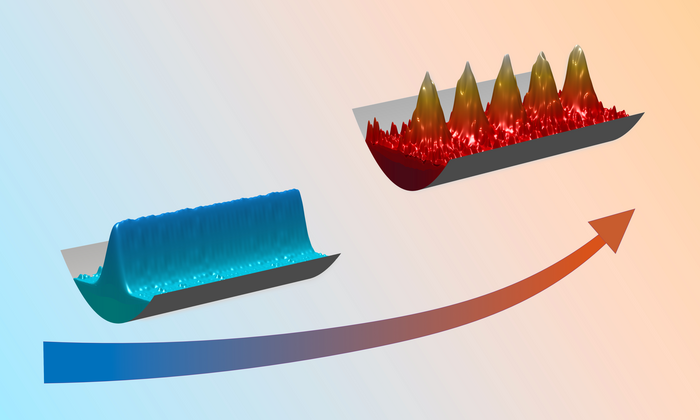Supersolids are a relatively new and exciting area of research. They exhibit both solid and superfluid properties simultaneously. In 2019, three research groups were able to demonstrate this state for the first time beyond doubt in ultracold quantum gases, among them the research group led by Francesca Ferlaino from the Department of Experimental Physics at the University of Innsbruck and the ÖAW Institute for Quantum Optics and Quantum Information (IQOQI) in Innsbruck.

Credit: Aarhus University
Supersolids are a relatively new and exciting area of research. They exhibit both solid and superfluid properties simultaneously. In 2019, three research groups were able to demonstrate this state for the first time beyond doubt in ultracold quantum gases, among them the research group led by Francesca Ferlaino from the Department of Experimental Physics at the University of Innsbruck and the ÖAW Institute for Quantum Optics and Quantum Information (IQOQI) in Innsbruck.
In 2021, Francesca Ferlaino’s team studied in detail the life cycle of supersolid states in a dipolar gas of dysprosium atoms. They observed something unexpected: “Our data suggested that an increase in temperature promotes the formation of supersolid structures,” recounts Claudia Politi of Francesca Ferlaino’s team. “This surprising behaviour was an important boost to theory, which had previously paid little attention to thermal fluctuations in this context.”
The Innsbruck scientists joined the force with the danish theoretical group led by Thomas Pohl to explore the effect of thermal fluctuation. They developed and published in Nature Communications a theoretical model that can explain the experimental results and underlines the thesis that heating the quantum liquid can lead to the formation of a quantum crystal. The theoretical model shows that as the temperature rises, these structures can form more easily.
“With the new model, we now have a phase diagram for the first time that shows the formation of a supersolid state as a function of temperature,” Francesca Ferlaino is delighted to say. “The surprising behavior, which contradicts our everyday observation, arises from the anisotropic nature of the dipole-dipole interaction of the strongly magnetic atoms of dysprosium.”
The research is an important step towards a better understanding of supersolid states of matter and was funded by the Austrian Science Fund FWF, the European Research Council ERC and the European Union, among others.
Publication: Heating a quantum dipolar fluid into a solid. J. Sanchez-Baena, Claudia Politi, F. Maucher, Francesca Ferlaino, and T. Pohl. Nature Communications 14, 1868 (2023) DOI: https://doi.org/10.1038/s41467-023-37207-3
Journal
Nature Communications
DOI
10.1038/s41467-023-37207-3
Method of Research
Experimental study
Article Title
Heating a quantum dipolar fluid into a solid
Article Publication Date
4-Apr-2023




